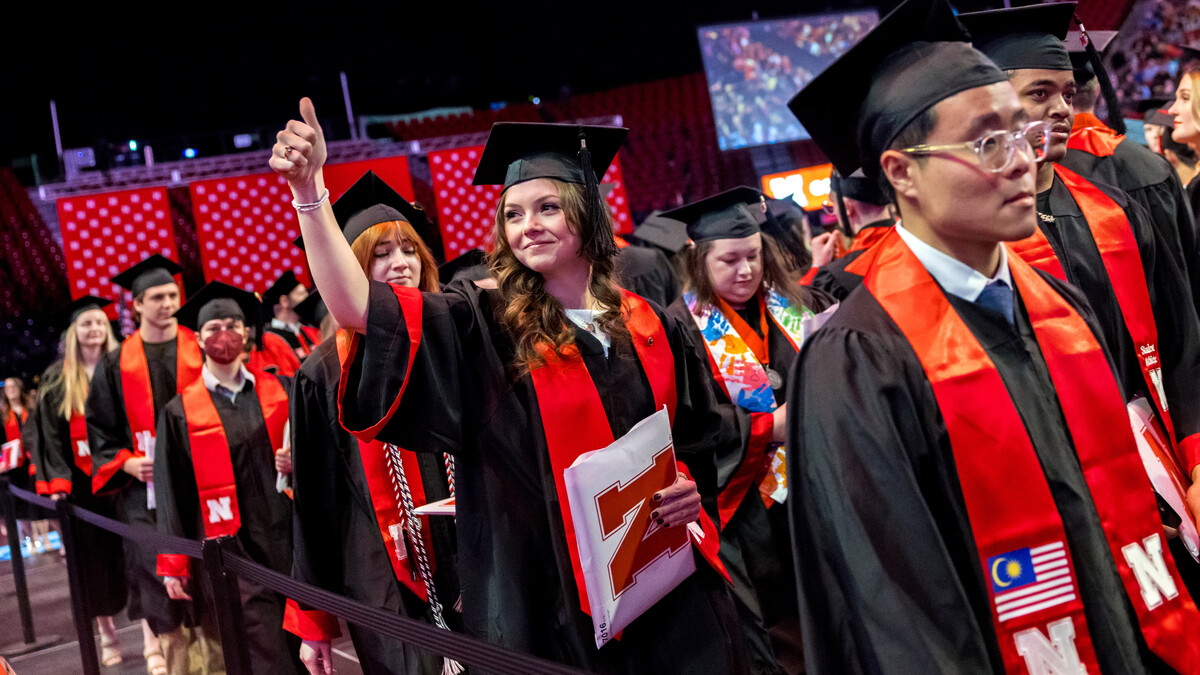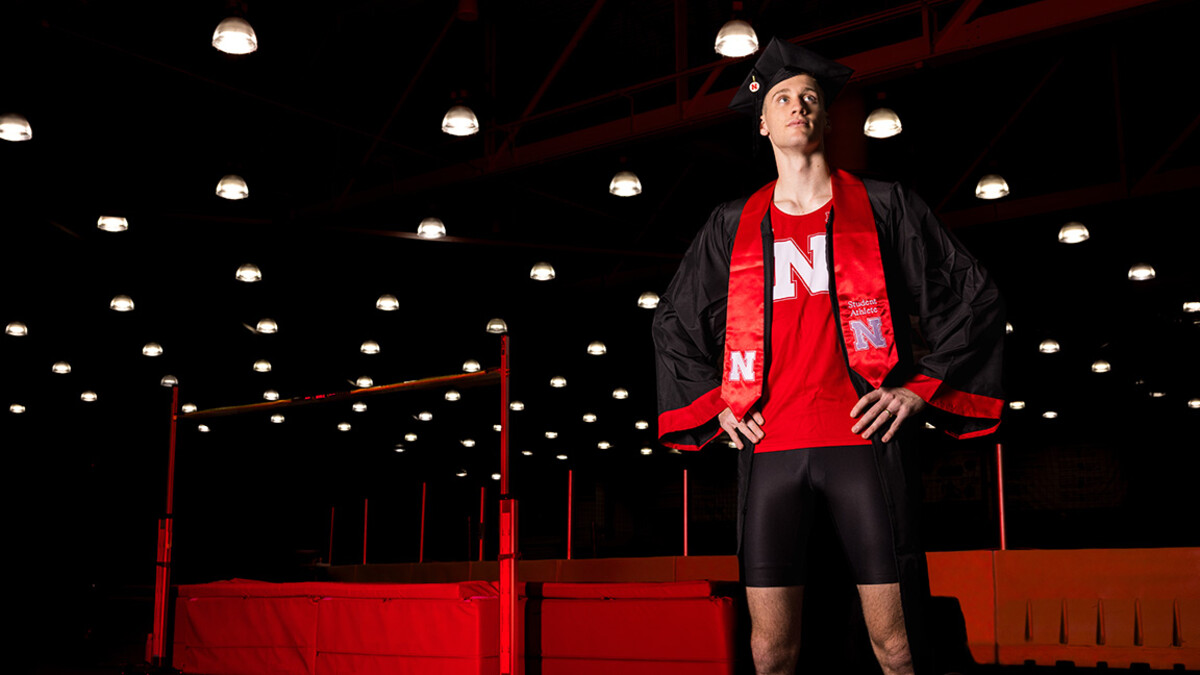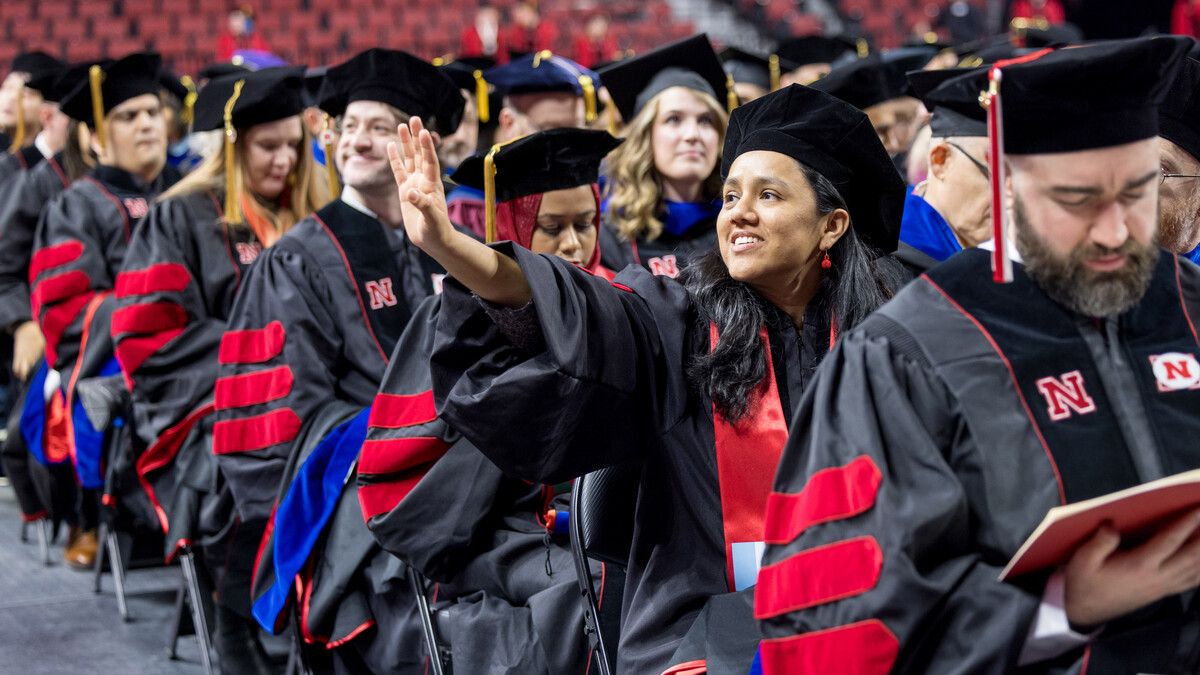
A new study led by University of Nebraska–Lincoln researchers showing that humans are disrupting a 66 million-year-old feature of ecosystems made headlines in April. The articles were among 25-plus national news stories featuring Husker faculty, staff, students, centers and programs during the month.
Will Gearty, postdoctoral researcher in biological sciences; Kate Lyons, assistant professor of biological sciences; and a four-continent team have found that extinctions of the largest herbivores and carnivores are disrupting what appears to be a fundamental feature of past and present ecosystems. Stories on the research have appeared in Cosmos, Earth.com, The Independent, UPI and several other media outlets. Yahoo! News U.K. picked up the Independent’s story.
Looking to the future, the research team projects that there’s a greater than 50% chance that multiple large- and medium-sized mammals — including the tiger and Javan rhinoceros, both of which count humans as their only predators — will go extinct within the next 200 years.
This doesn’t bode well, as those predicted extinctions would only exacerbate the disruption of the U-curve and have unpredictable consequences for wildlife and humans.
“It’s certainly possible that as we take some of these animals off the top (of the U-curve), and as we collapse some of these ranges of body sizes, that we’re altering the way the energy is divvied up,” Gearty said. “That could perhaps have fundamental repercussions for the environment and ecosystem as a whole.”
More coverage:
Eric Thompson, economics, director of the Bureau of Business Research, appeared in an April 1 New York Times article on Nebraska’s low unemployment rate, which he said might be caused by the labor market rebalancing.
Heather Richards-Rissetto, anthropology, was interviewed for an April 3 article in the Santa Fe New Mexican. She talked about her research uncovering the Mayan temple Rosalila in the ancient city of Copán, Honduras.
Margaret Huettl, ethnic studies and history, appeared in an April 4 Undark story about how rhetoric used to describe space exploration has recently come under scrutiny by historians and Indigenous scholars who say the language is rooted in colonialism. She discussed how within the colonialist mindset, everything is a resource to be exploited or extracted. “How have we treated the planet on which we live now?” she said. “Will we behave the same way in a different, an extraterrestrial, place?” Mother Jones picked up the story.
Frans von der Dunk, space law, was interviewed for an April 5 Law360 article. He discussed the use of civilian satellites in the Russia-Ukraine conflict.
Azzeddine Azzam, agricultural economics, appeared in an April 5 BEEF magazine story. He discussed his USDA-funded study of the impact of the COVID-19 pandemic on meat processors and the resilience of the industry as a whole. WNAX and Meat + Poultry ran similar stories.
Courtney Hillebrecht, political science, director of human rights and humanitarian affairs, appeared in an April 6 Daily Beast story. She spoke about how prosecution of Russia for war crimes in Ukraine may take years. Yahoo! News picked up the story.
Hillebrecht also discussed war crime prosecution in an April 26 Politifact article.
Rupal Mehta, political science, was quoted in an April 6 Vox story on the Iran nuclear deal. She spoke about how international nuclear agreements depend on the United States’ credibility and commitment.
Nick Monk, director of the Center for Transformative Teaching, and Steven Cain and Brian Wilson, senior instructional designers with the center, were the featured guests on the April 8 episode of the Centering Centers podcast.
JBS USA, a leading global food company, has made a gift of $700,000 to the University of Nebraska Foundation to support the University of Nebraska–Lincoln and its plans for a new Feedlot Innovation Center near Mead. Stories on the new center have appeared in the Grand Island Independent, KHGI, WNAX, Beef magazine, Brownfield Ag News, Farm Progress, Feedstuffs and Meat + Poultry.
Hundreds of Nebraska Extension professionals helped communities across the state recover from the 2019 floods, the National Institute of Food and Agriculture reported April 13. Extension staff Martha Shulski, Soni Cochran, Mark Robertson, Sandra Barrera and Brad Schick were quoted in the story.
Eric Berger, law, was the featured guest on the April 16 episode of the Faithful Politics podcast. He discussed the future of Roe v. Wade.
Hernan Garcia-Ruiz, virology, was interviewed for an article in the May issue of Scientific American on a new study showing how plentiful pollen-borne viruses are and suggesting that human activity may help them spread. He said the study grabbed his attention because the authors uncovered a plethora of viruses even in plants that did not appear sick. Such microbes may not be as benign if transmitted from wild plants to crops, he said.
Yi Xuen Tay, graduate student in educational administration, appeared in an April 20 story in The Chronicle of Higher Education. She discussed the importance of getting students’ names right in educational settings and her experience in those situations as an international student from China.
The U.S. Drought Monitor — produced jointly by the university’s National Drought Mitigation Center, the National Oceanic and Atmospheric Administration and the U.S. Department of Agriculture — was cited in an April 21 Forbes article on drought harming U.S. agriculture. The monitor shows that the West’s current multiyear drought is “the most extensive and intense” in the 22-year history of the database.
Mark Svoboda, director of the drought center, appeared in an April 27 NBC News story on how dry conditions in Nebraska will intensify wildfire season. He discussed how since October, Nebraska has received less than half of the rainfall it usually gets, which combined with high wind speeds could result in more intense wildfires.
Bedross Der Matossian, history, was interviewed for an April 23 Los Angeles Review of Books article. He discussed his new book, “The Horrors of Adana,” about the Adana Massacres of 1909.
Anthony Schutz, law, was interviewed for an April 23 NBC News article on Nebraska’s attempt to divert water from the South Platte River that it shares with Colorado. He discussed how the Nebraska Legislature approved construction of a $53 million canal in Colorado that would solidify its share of water. The story was picked up by MSN Canada and Yahoo! News.
Eileen Hebets, biological sciences, was interviewed for an April 25 National Geographic article on a new study showing that male spiders of the species Philoponella prominens can escape sexual cannibalism by catapulting away. She said male spiders use many methods to try to escape being eaten by their mates — including knocking them out, tying them up with silk and bringing prey as a distraction. The story was picked up by MSN.com, NBC News, USA Today, Yahoo! News and a few other media outlets.
The Johnny Carson School of Theater and Film appeared in an April 28 Variety list of the 30 top film schools in North America. The school is funded with more than $33 million from the Carson estate and offers students tracks in emerging media arts, design/technical production and acting. “A lot of the learning is not done during a lecture, it’s done during a production or something more experimental,” said Richard Endacott, film, associate director of the Carson School. “Either you’re creating a short film or you’re learning how to code a VR experience, and we want to provide our students with those opportunities.”
Katie Edwards, educational psychology, was interviewed for an April 29 Verywell Family article on how parents can teach their children about consent. She said failing to do so puts them at risk of sexual abuse. “If we don’t teach children about consent and body autonomy or give them skills to resist and report sexual abuse, we are perpetrating the sexual abuse epidemic in our country,” she said.
Broadway World published an April 30 review of the Broadway musical “Come From Away” at the Lied Center for Performing Arts.
Faculty, administration, student and staff appearances in the national media are logged at http://newsroom.unl.edu/inthenews. If you have additions to the list, contact Sean Hagewood at shagewood2@unl.edu or 402-472-8514. If you have suggestions for national news stories, contact Leslie Reed at lreed5@unl.edu or 402-472-2059.







